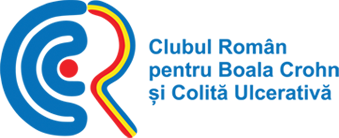Leading Change in IBD
Building Excellence in IBD Care in Romania
Main objective:
- To improve detection and management (therapy, education, social and professional integration) of IBD patients.
Secondary objectives:
- To improve medical and general awareness for IBD
- To improve medical tools and skills for IBD diagnosis
- To increase and accelarate access to S-o-C therapy for Romanian IBD patients
- To improve patients’ education
Deadline: 2013-2015
Human Organizational Founding Resources: Romanian Task Force (RCCC, SRGH, SRED, Patients’ Association, Pharma, IBD Nurses, Imagists, Surgeons)
ACTION PLAN
A. EDUCATIONAL TARGETS
1. Increasing Awareness for IBD:
– FPs awareness – meetings with FPs
– General awareness – media campaign: at starting Registry for IBD; IBD Day
Responsible: Local experts, RCCC Board/President
2. Improving Detection:
a) Active registration of IBD cases (new and old), hospital/outpatients in IBD Prospect Database (National Database – a goldmine to characterize IBD and IBD management throughout Romania)
Responsible: Adrian Goldis, Dana Dobru, Cristina Cijevschi
b) Epidemiologic research: Are IBD rare or underdiagnosed in Romania?
b1) IBD Prospect (1 Nov 2013 – 1 Nov 2014; aim: freq. IBD in Romania – 10 years later)
Responsible: Cristian Gheorghe, Simona Bataga, Bogdan Mateescu
b2) A structured questionnaire administered to IBD patients enrolled in IBD Prospect Database in order to assess the changing epidemiological factors leading to increasing incidence of IBD;
Responsible: Liana Gheorghe, IE Csiki
b3) Starting a Regional Registry for IBD in connection with EPIMAD (24-26 Nov 2013); 1 Jan 2014 – starting with a pilot country project coordinated by Bucharest meeting FPs, meetings of gastroenterologists, meeting investors.
Responsible: Liana Gheorghe, Adrian Goldis
3. Patients education:
– Empowering patients by education, decision making, developing skills, communication, integration
– Interactive site – ASPIIR, national and international actions aimed to counsel, educate and integrate, developing skills, relationship and communication.
Responsible: Liana Gheorghe, Bogdan Mateescu, Cristina Cijevschi, Dan Gheonea
B. DIAGNOSIS LEVELS
Improving diagnosis
Are diagnostic facilities available, properly used and equitable widespread in Romania?
1. Spread of ECCO criteria for clinical approach, diagnosis and management:
– ECCO workshop;
– Evaluation online at the annual meeting RCCC.
Responsible: All, Anca Trifan, Bogdan Mateescu
2. Developing human and material resources:
– endoscopy (high resolution, video capsule, CLE etc)
– imaging + minimal invasive treatment
– histology;
– biomarkers.
IBD imagists, IBD surgeons; IBD pathologists.
Training for young GE fellows: hands-on courses, workshops, bursaries, RCCC annual meeting session, educational site (checklist)
Responsible: Marcel Tantau, Anca Trifan, Cristian Gheorghe, Bogdan Mateescu, Eugen Dumitru, Gabi Becheanu, Mugur Grasu, Dragos Negru, Cosmin Caraian, Teo Voiosu, Carmen Preda, Cristina Cijevschi, Dan Gheonea
3. Creating Centers of Excellence:
– strict criteria, adapted for Romania;
– implementation;
– recognition;
– founding;
– audit
Elaboration/publication in JGLD – Amendments;
Discussion/negotiation with authorities
Responsible: Lucian Negreanu, Liana Gheorghe, Mircea Diculescu, Adrian Goldis, Anca Trifan, Dana Dobru
C. THERAPEUTIC DIRECTIONS
1. Upgrade IBD therapeutic protocols;
2. Biologics registry – connected with NHIH (CNAS);
3. Nutrition.
Responsible: Bogdan Mateescu, Mircea Diculescu, Liana Gheorghe, Roxana Vadan, Lucian Negreanu

